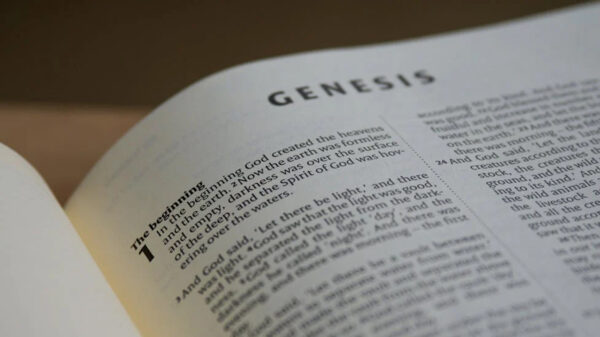
The disciples were mistaken about Jesus’ death
The disciples were lying about Jesus’ resurrection
The disciples were delusional and only imagined Jesus’ resurrection
The disciples were fooled my an imposter who claimed to be the risen Jesus
The disciples were influenced by a vision experience by only one of them
The disciples were distorted and misrepresented by those who followed them
Each explanation has several liabilities, and these explanatory deficiencies have been exploited by Christian apologists for many years in an effort to establish the Christian explanation as the most reasonable:
The disciples were correct about their observations related to the death and resurrection of Jesus
As a detective, I’ve come to recognize that any explanation of an event in the past has its own set of virtues and liabilities. Even in my own cases, when I’ve gathered the evidence, reconstructed and articulated an account of criminal events, and successfully prosecuted a defendant in a case, I’ve always been aware of the liabilities and evidential deficiencies in my explanation of events. No case is perfect. All cases have unanswered questions. All cases have strengths and weaknesses. Juries are able to make decisions in spite of this reality because they reach a point of evidential sufficiency and conclude that the liabilities are outweighed by the strengths of the case. They also come to accept one explanation as superior to the rest.
So as I examine the Christian explanation for the Resurrection, I am quick to recognize its strengths and weaknesses. On the one hand, it accounts for the minimal evidences thoroughly (and it also accounts for a much larger set of evidences related to the Resurrection as described by Gary Habermas and Michael Licona in The Case for the Resurrection of Jesus). On the other hand it suffers from what some would say is an insurmountable liability:
A supernatural event (like the resurrection) must be possible in order for the disciples to be correct about their observations related to the death and resurrection of Jesus
For many people, this liability is simple too much to overcome. They simply cannot accept the “reasonability” of supernatural explanations. I can sympathize with their hesitation. I also resisted supernatural explanations for the resurrection of Jesus for most of my adult life. But as I began to examine the case for the Resurrection and the existence of God, I began to realize that the issue I was trying to investigate required me to suspend my philosophical naturalism (the first chapter of my book describes the danger of allowing your presuppositions to guide your investigation). Think about what we are investigating when we examine the facts related to the Resurrection. An investigation of this sort seeks an answer for the following questions:
Can something supernatural, like the Resurrection, occur?
Did Jesus supernaturally rise from the dead?
Did God supernaturally raise Jesus from the dead?
Does a supernatural God exist?
When we investigate the Resurrection, we seek to discover if supernaturalism is true. We cannot, therefore, begin from a position of philosophical naturalism. Share on X
Inherent in all of these investigative questions is the issue of supernaturalism. When we investigate the Resurrection, we seek to discover if supernaturalism is true. We cannot, therefore, begin from a position of philosophical naturalism, rejecting the supernatural from the onset; after all, this is the target of our investigation. If we are going to answer these questions fairly, we have to allow the evidence to guide our investigation rather than our presuppositions. For this reason, we can’t allow the “liability” of the Christian explanation (its supernatural basis) to prevent us from concluding the explanation is the most reasonable. Instead, we have to examine its explanatory strength and ask ourselves the question: “Are we rejecting the Resurrection based on the evidence or based on our presupposition against anything supernatural?”

J. Warner Wallace is a Dateline featured Cold-Case Detective, Senior Fellow at the Colson Center for Christian Worldview, Adj. Professor of Christian Apologetics at Talbot School of Theology, Biola University, author of Cold-Case Christianity, God’s Crime Scene, and Forensic Faith, and creator of the Case Makers Academy for kids.
Subscribe to J. Warner’s Daily Email
Save
J. Warner Wallace is a Dateline featured cold-case homicide detective, popular national speaker and best-selling author. He continues to consult on cold-case investigations while serving as a Senior Fellow at the Colson Center for Christian Worldview. He is also an Adj. Professor of Christian Apologetics at Talbot School of Theology, Biola University, and a faculty member at Summit Ministries. He holds a BA in Design (from CSULB), an MA in Architecture (from UCLA), and an MA in Theological Studies (from Gateway Seminary).







































Pingback: The Problem with the Christian Explanation by James Warner Wallace | THINKAPOLOGETICS.COM
Pingback: The Problem with the Christian Explanation | THINKAPOLOGETICS.COM
Pingback: A Brief Review of Explanations Offered for the Resurrection (Free Bible Insert) | Cold Case Christianity
Pingback: Explanations Offered for the Resurrection | Christian Apologetics
Pingback: The Problem with the Christian Explanation | TLG Christian News